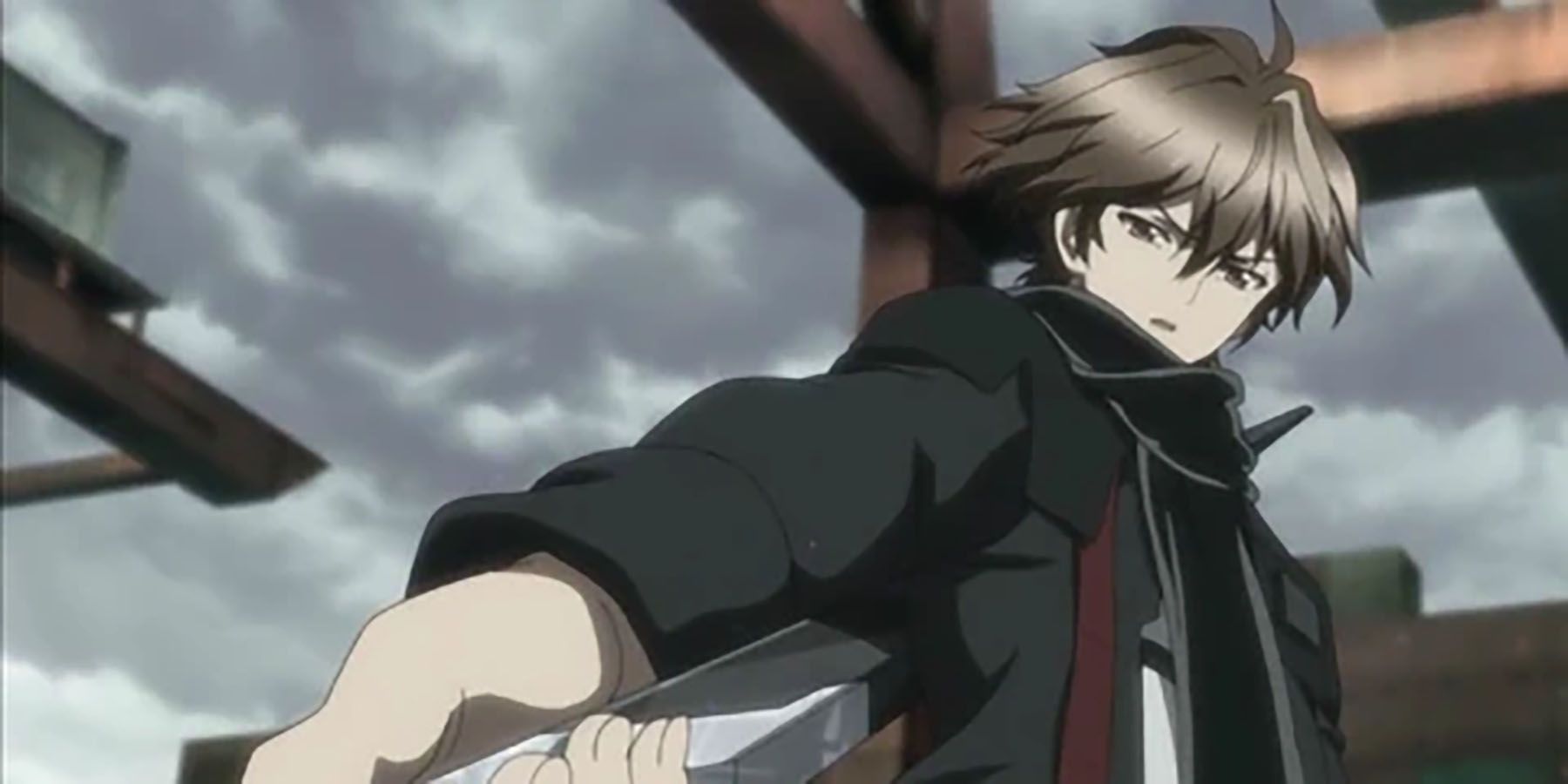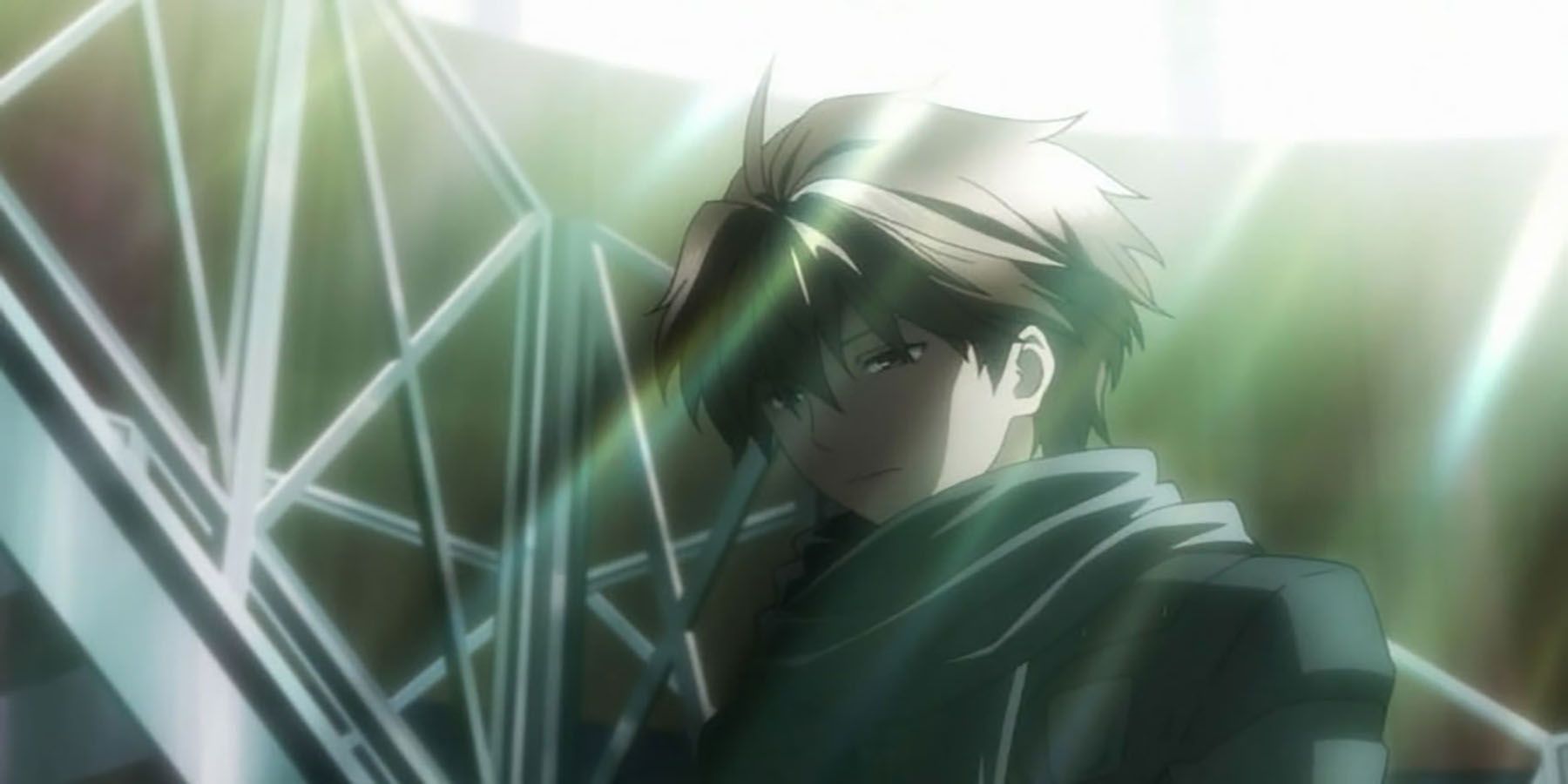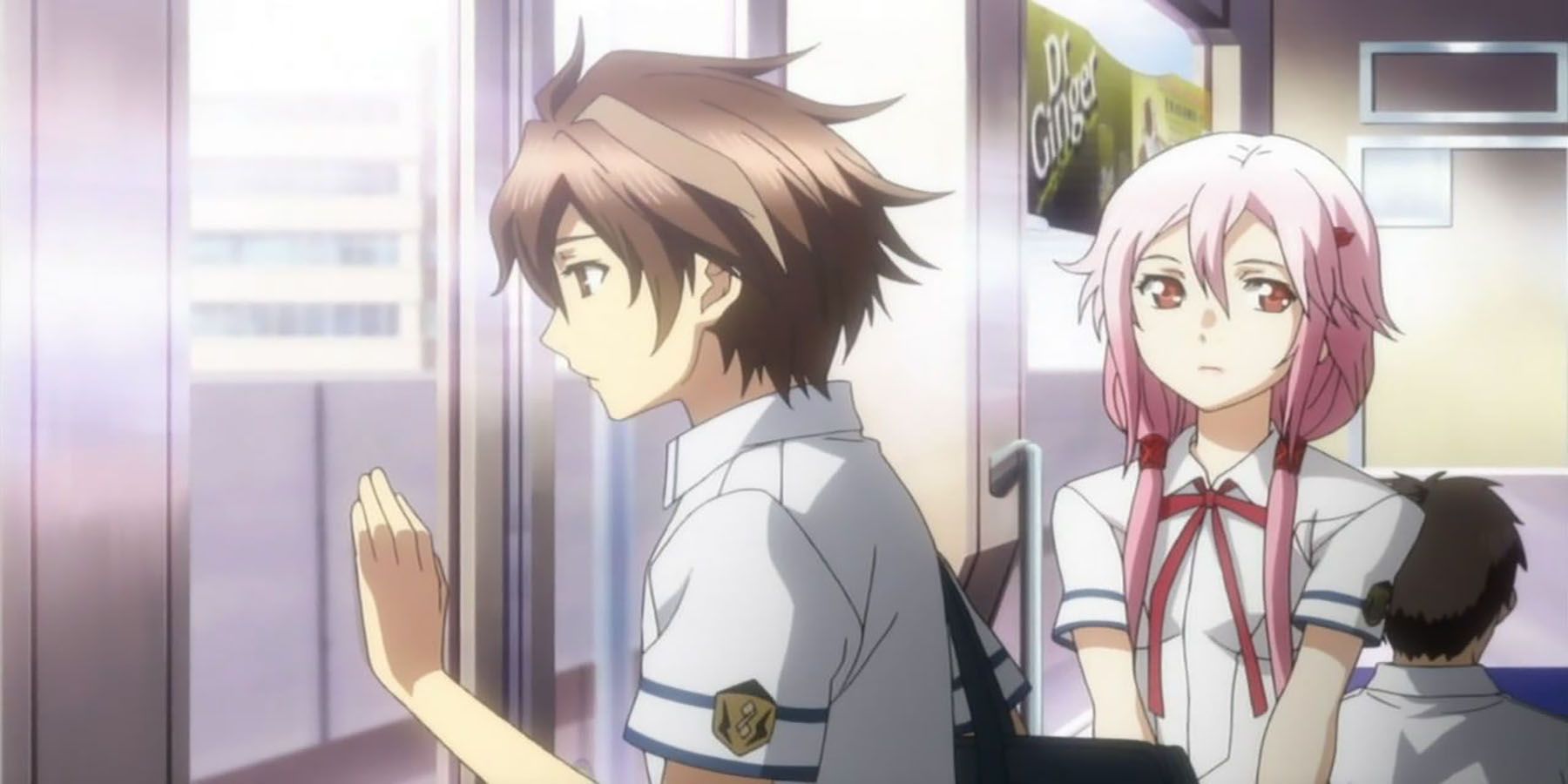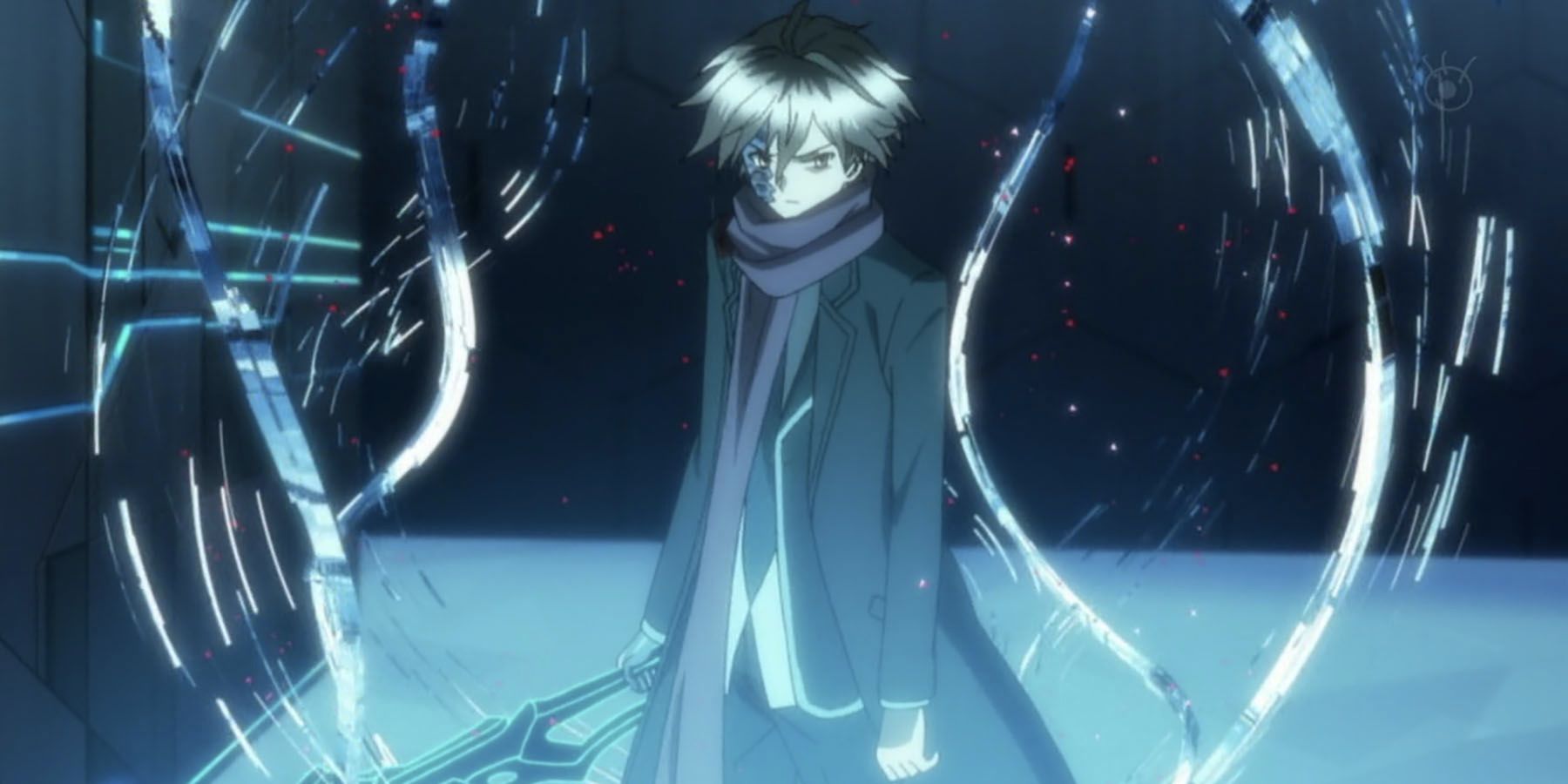
Guilty Crown: Analyzing Shu Ouma as an Authentic Protagonist

Guilty Crown: Unveiling the Realism of Shu Ouma, a Flawed Protagonist Dive into the complexities of his character as we explore the King's Power, Main Character Syndrome, Living by Circumstance, and the Cowardly Lion within him
Article Key Points
Shu Ouma from Guilty Crown is a realistic and relatable character who starts as an average guy, making flawed decisions that imply growth.
Shu distinguishes himself from other anime characters by grappling with social anxiety, facing difficulties in asserting himself, and harboring relatable fears of embarrassing situations. Throughout Guilty Crown, Shu's character development charts his transformation from a timid and passive individual to someone who develops unwavering determination to make morally sound choices as a result of his experiences.
Finding realistic or relatable characters in anime has been a challenge over the past decade. Many characters often serve as vessels for viewers to project themselves onto. While there's nothing inherently wrong with writing inexperienced characters, it's crucial for them to possess their own ambitions and backstory in order for the audience to truly connect with them.
Shu Ouma from Guilty Crown is anything but perfect. At first glance, he may appear to be just another "average guy" protagonist. However, his flawed thinking and the decisions he makes throughout the show suggest otherwise.
The King's Power
A common concern among viewers of Guilty Crown is its similarity to Code Geass. Written by Hiroyuki Yoshino, with assistance from Ichiro Okouchi (writer of Code Geass), it is not surprising to find parallels in the storytelling. In Code Geass, the protagonist Lelouch inadvertently becomes involved in a conflict between a resistance group and a corrupt government. Confronted with danger, he is bestowed with a divine power by a mysterious girl named C.C., which he then uses to save everyone in the first episode. Lelouch possesses natural leadership qualities, a strong sense of justice, and an undeniable charisma. On the other hand, Shu, the protagonist of Guilty Crown, experiences a similar chain of events and gains a comparable power, but he is not inherently suited to be a leader. In fact, he was never supposed to possess the King's Power, as another individual was destined for it. From a narrative standpoint, Shu is often overshadowed by the other characters. However, he is the more relatable and realistic of the two.
Main Character Syndrome
Many individuals tend to view themselves as the protagonist in their own personal narratives, often sharing their hypothetical actions in various situations. After all, everyone aspires to be a hero. However, when faced with real-life challenges, most individuals would hesitate to seize the opportunity. Shu Ouma is the epitome of averageness, with a small circle of friends, an ordinary school life, and a tendency to keep to himself. He is portrayed as someone who struggles with social anxiety and finds it difficult to assert himself, distinguishing him from the typical anime characters. Let's not deceive ourselves; there isn't a person in reality who hasn't experienced the fear of being embarrassed while raising their hand in class. Shu personifies that fear.
In episode 1, Inori is apprehended by the GHQ, a government faction, after their encounter. Shu attempts to reason with them by politely asking for Inori to be treated more gently. Subsequently, he faces a group of thugs and tries to defuse the situation by showing respect. Shu is a 17-year-old Japanese high school student, living in a society that values grace and negotiation. Additionally, he is a non-violent individual who has never encountered such circumstances before. Consequently, Shu feels paralyzed like most people would be. Unexpectedly obtaining the King's Power, which he never desired, Shu becomes embroiled in a conflict for which he is unprepared.
Although regarded as an incredibly iconic moment in anime, Shu's "awakening" is propelled by his desire to prove himself and save someone, albeit at the worst possible moment. Due to his careless actions, the vial containing the King's Power breaks, unintentionally empowering Shu and enabling him to defeat the opposing faction. In conclusion, Shu's success is largely attributed to luck.
Living by Circumstance
The sequence of events that initiated Shu's introduction to the Tokyo underworld were all based on circumstance. He happened to be in the wrong place at the wrong time, and when he took matters into his own hands, he unexpectedly acquired a newfound responsibility. It is rare to come across individuals who possess the innate ability to gather a following, as most people are not natural-born leaders. Shu, by nature, is feeble-minded and passive, causing his decisions to be influenced by his personality traits rather than logical reasoning. Despite already being involved, Shu declines an offer to join the resistance group known as Funeral Parlor. However, when he finds himself held for ransom by the GHQ and ultimately saved by Funeral Parlor, Shu is torn between deciding where his loyalty truly lies. From a logical standpoint, aligning with Funeral Parlor, the "good guys," would make the most sense. Nevertheless, the GHQ represents the government, and authority figures often symbolize the "adults" in society. Conflicted by his inclination to remain within his comfort zone and the belief that authority holds utmost importance, Shu faces a dilemma.
The Cowardly Lion
As the series unfolds, Shu gradually emerges from his introverted shell, showcasing noticeable character development. However, his imperfections persist. His lack of worldly wisdom hampers his ability to lead a group effectively, allowing others to exploit his empathetic nature. Yet, with each misstep, Shu grows, culminating in a kind-hearted demeanor fused with unwavering determination by the anime's conclusion. It is during those instances in Guilty Crown when Shu musters the courage to assist and takes daring risks that we applaud him. Ultimately, it is our life experiences that mold us, and Shu's entire character arc epitomizes this truth.
Editor's P/S
As a Gen Z fan, I find Shu Ouma to be a refreshing and relatable protagonist. In a sea of anime characters who are often portrayed as flawless and larger than life, Shu is a character who is flawed and relatable. He is someone who struggles with social anxiety and self-doubt, but who is also kind and compassionate. I appreciate that Shu is not afraid to show his emotions, and that he is not always the strongest or most capable person in the room. His character development over the course of the series is also very well done, and I enjoyed watching him grow and change as a person.
Overall, I think Shu Ouma is a great example of a well-written and relatable anime protagonist. He is a character who I can relate to, and I am excited to see what happens to him in the future.










